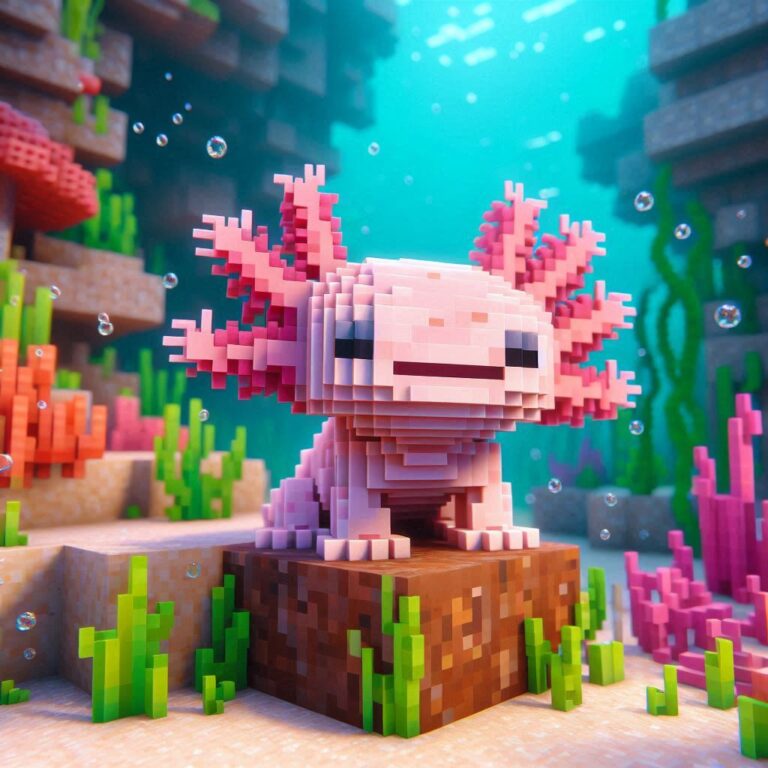
Axolotls, native to the freshwater lakes of Mexico, have found themselves not only in laboratories and aquariums worldwide but also in Canadian homes. Despite their natural habitat being far from the Canadian landscape, axolotls have become popular exotic pets across the country. With proper care and suitable aquatic environments, Canadians have embraced these unique amphibians, providing them with the necessary conditions to thrive. Whether housed in private aquariums or as part of conservation efforts in research institutions, axolotls have indeed found a niche within the Canadian ecosystem, captivating enthusiasts with their fascinating biology and captivating presence.
Environment Effect
Axolotls, despite their distant origins in the freshwater lakes of Mexico, have successfully adapted to various environments, including those found in Canada. Their presence in Canadian habitats, whether in captivity or in controlled research settings, has raised intriguing questions about their ecological impact. While axolotls themselves are not known to be invasive species, their introduction into Canadian ecosystems could potentially disrupt local biodiversity. However, due to their specific habitat requirements and limited range in the wild, the likelihood of axolotls establishing self-sustaining populations in Canada’s natural habitats remains low. Nonetheless, their presence in controlled environments serves as a reminder of the interconnectedness of global ecosystems and the need for responsible pet ownership and conservation efforts.
Suitable Habitat
Creating a suitable habitat for axolotls in Canada is crucial for their health and well-being. These amphibians thrive in cool, well-filtered water with temperatures ranging from 16 to 18 degrees Celsius, mimicking their native freshwater lake habitats in Mexico. A spacious aquarium with a minimum capacity of 20 gallons is recommended to provide ample swimming space and accommodate their bottom-dwelling behavior. Adding plants and decor not only enhances the aesthetic appeal but also provides hiding spots and enrichment for axolotls. Additionally, a fine substrate such as sand or smooth gravel is preferred to prevent injury to their delicate skin. Regular water quality maintenance, including filtration and partial water changes, is essential to ensure a clean and healthy environment for axolotls to thrive.
Climate Considerations
In Canada, where temperatures can vary significantly depending on the region and season, climate considerations play a crucial role in maintaining suitable conditions for axolotls. While they are cold-blooded creatures and can tolerate cooler water temperatures, extreme fluctuations or prolonged exposure to temperatures outside their optimal range can be detrimental to their health. Therefore, it’s essential for axolotl owners to monitor and regulate water temperature carefully, especially during colder months. Using aquarium heaters and thermometers can help maintain a stable environment and ensure the well-being of these fascinating amphibians throughout the year.
Impact on Native Species
The introduction of non-native species like axolotls into Canadian ecosystems can potentially have unforeseen consequences for native species and biodiversity. While axolotls themselves are not predatory and primarily feed on small aquatic organisms, their presence could still disrupt local food webs and compete with native species for resources. Additionally, axolotls have the potential to carry diseases or parasites that could affect native wildlife populations. Therefore, it’s essential for axolotl owners to prevent the accidental release or escape of these amphibians into natural habitats and to adhere to responsible pet ownership practices to mitigate any potential negative impacts on native species and ecosystems.
Legality
In Canada, the legality of owning axolotls varies depending on provincial and municipal regulations. Generally, axolotls are legal to own as pets, but there may be specific restrictions or requirements regarding their importation, sale, and possession. It’s essential for prospective axolotl owners to research and understand the laws and regulations governing the ownership of these amphibians in their area to ensure compliance and avoid potential legal issues. While axolotls are not considered invasive species in Canada, responsible ownership practices are essential to prevent any negative impacts on local ecosystems and wildlife.
Regulations on Ownership
The regulations on owning axolotls in Canada typically focus on ensuring the welfare of the animals and preventing potential environmental harm. Owners may be required to adhere to specific guidelines regarding the care and housing of axolotls, including providing suitable habitats and proper nutrition. Additionally, regulations may dictate the sourcing of axolotls, with restrictions on importing wild-caught specimens to prevent the spread of diseases and parasites. By following these regulations, axolotl owners contribute to the responsible management of captive populations and help protect wild habitats and biodiversity.
Permits and Licenses
In some cases, individuals may need permits or licenses to own axolotls in Canada, particularly if they are involved in breeding or selling these amphibians. Permits and licenses may be required to ensure that axolotls are obtained from reputable sources and that their trade is conducted ethically and responsibly. These permits may also include provisions for regular inspections to ensure compliance with animal welfare standards and conservation requirements. By obtaining the necessary permits and licenses, axolotl enthusiasts demonstrate their commitment to responsible pet ownership and contribute to the sustainable management of captive populations.
Conservation Efforts
Despite being native to Mexico, axolotls have become a symbol of conservation efforts worldwide, including in Canada. Conservation initiatives focus on preserving wild populations, protecting their natural habitats, and promoting responsible captive breeding programs to maintain genetic diversity. Canadian institutions, such as universities and research centers, play a vital role in axolotl conservation through scientific research, education, and public outreach. By raising awareness about the plight of axolotls in the wild and advocating for their protection, conservation efforts in Canada contribute to the global conservation of this unique amphibian species. Through collaborative efforts and innovative strategies, conservationists strive to ensure a brighter future for axolotls and their habitats for generations to come.
Axolotl Price in Canada

In Canada, the price of axolotls can vary depending on various factors such as their age, color morph, size, and source. Typically, juvenile axolotls are more affordable compared to adults, with prices ranging from $20 to $50 CAD. However, rare color morphs or genetically unique specimens may command higher prices, sometimes reaching up to $100 or more. Additionally, the availability of axolotls in Canada can influence their price, with seasonal fluctuations and demand affecting market prices. While the initial cost of acquiring an axolotl may be relatively low, prospective owners should also consider the ongoing expenses associated with their care to ensure a healthy and fulfilling life for their aquatic companions.
Cost of Axolotls
The cost of axolotls in Canada can vary depending on several factors, including their age, coloration, and genetic traits. Generally, juvenile axolotls are more affordable than adults, with prices typically ranging from $20 to $50 CAD. However, rare color morphs or genetically unique specimens may command higher prices, sometimes exceeding $100 or more. Additionally, the cost of axolotls may also be influenced by their source, with captive-bred specimens typically being more expensive than wild-caught individuals due to the efforts involved in breeding and raising them in captivity. While the initial investment in acquiring an axolotl may vary, prospective owners should also budget for ongoing expenses such as habitat maintenance, food, and healthcare to ensure the well-being of their aquatic companions.
Additional Expenses
While the cost of acquiring an axolotl in Canada may be relatively affordable, prospective owners should also budget for additional expenses associated with their care. These expenses may include the cost of setting up and maintaining a suitable aquarium habitat, including filtration systems, substrate, decor, and lighting. Additionally, ongoing expenses such as high-quality axolotl food, water conditioner, and routine veterinary care should also be taken into consideration. Other potential expenses may include the cost of replacing equipment or upgrading habitat components as axolotls grow and their needs change. By budgeting for these additional expenses upfront, prospective axolotl owners can ensure that they are adequately prepared to provide a comfortable and healthy environment for their aquatic companions.
Availability and Sources
In Canada, axolotls are available from a variety of sources, including pet stores, breeders, and online retailers. While pet stores may offer convenience and immediate availability, prospective axolotl owners should carefully research the source and reputation of the store to ensure the health and quality of the specimens they purchase. Alternatively, purchasing axolotls directly from reputable breeders or specialized axolotl enthusiasts can provide access to a wider selection of color morphs and genetically diverse specimens. Online marketplaces and classified ads may also offer axolotls for sale, but buyers should exercise caution and thoroughly vet sellers to avoid potential scams or unethical practices. Regardless of the source, it’s essential for prospective axolotl owners to prioritize the health and welfare of the animals and choose reputable sources that prioritize ethical breeding practices and the well-being of their aquatic companions.
Pros of Owning Axolotls in Canada:
- Low Maintenance: Axolotls are relatively low-maintenance pets compared to other exotic animals. They don’t require daily walks or extensive grooming, making them ideal for busy individuals or first-time pet owners.
- Unique Appearance: With their external gills, feathery gill fringes, and perpetual “smile,” axolotls have a captivating and unique appearance that makes them fascinating pets to observe and interact with.
- Educational Value: Owning axolotls provides an excellent opportunity for education and learning about aquatic ecosystems, amphibian biology, and animal behavior. They can be a valuable educational tool for classrooms, science projects, and nature enthusiasts.
- Long Lifespan: With proper care, axolotls can live for a decade or more in captivity, providing years of companionship and enjoyment for their owners.
- Regenerative Abilities: Axolotls possess remarkable regenerative abilities, capable of regrowing lost limbs, organs, and even parts of their brain. Witnessing this natural phenomenon can be both awe-inspiring and educational.
Cons of Owning Axolotls in Canada:
- Specific Care Requirements: Axolotls have specific care requirements, including cool water temperatures, adequate filtration, and appropriate tank setup. Failure to meet these requirements can lead to health issues and stress for the axolotls.
- Limited Availability of Supplies: Finding specialized axolotl supplies such as food, tank accessories, and water conditioners may be challenging in some areas of Canada. Owners may need to rely on online retailers or specialty pet stores for these items.
- Legal Considerations: While axolotls are legal to own in Canada, there may be regulations regarding their importation, sale, and possession. It’s essential for owners to research and comply with local laws to avoid potential legal issues.
- Potential for Escape: Axolotls are skilled escape artists and can wriggle through small openings in their tank lid. Owners must ensure that their tank is securely covered to prevent escapes and potential harm to the axolotls.
- Health Concerns: Like all pets, axolotls are susceptible to health issues such as fungal infections, bacterial diseases, and parasitic infestations. Owners must monitor their axolotls closely for signs of illness and seek veterinary care when necessary.
FAQs
Q. Are axolotls legal to own in Canada?
A. Yes, axolotls are legal to own in Canada. However, there may be regulations regarding their importation, and it’s essential to check local laws.
Q. What type of habitat do axolotls need in Canada?
A. Axolotls require a spacious aquarium with clean, cool water and hiding spots such as plants or caves.
Q. What do axolotls eat in Canada?
A. Axolotls primarily feed on live or frozen foods like bloodworms, brine shrimp, and small fish. They may also consume pellets or sinking axolotl food.
Q. Do axolotls require any special care in Canada?
A. Yes, axolotls require specific care, including cool water temperatures, adequate filtration, and regular water changes.
Q. Can axolotls live with other fish in Canada?
A. Axolotls are carnivorous and may attempt to eat smaller fish, so it’s not recommended to keep them with fish.
Q. How long do axolotls live in Canada?
A. With proper care, axolotls can live up to 10-15 years or even longer in captivity.
Q. Do axolotls need land in Canada?
A. No, axolotls are fully aquatic and do not require land. They spend their entire lives underwater.
Q. Are axolotls endangered in Canada?
A. Axolotls are considered critically endangered in the wild, but captive populations exist, including in Canada, where breeding programs aim to conserve the species.
Q. Can axolotls regenerate body parts in Canada?
A. Yes, axolotls have remarkable regenerative abilities and can regenerate limbs, organs, and even parts of their brain.
Q. How big do axolotls get in Canada?
A. Axolotls can grow up to 9-12 inches in length, although some individuals may reach larger sizes in optimal conditions.
Conclusion
In conclusion, owning axolotls in Canada offers a unique and rewarding experience for enthusiasts willing to meet their specific care requirements. These captivating amphibians bring joy and fascination with their unique appearance, regenerative abilities, and educational value. While there are challenges such as legal considerations, supply availability, and health concerns, the benefits of owning axolotls, including their low maintenance nature, long lifespan, and potential for educational enrichment, outweigh the drawbacks for many dedicated owners. With proper research, preparation, and responsible ownership practices, axolotl enthusiasts in Canada can provide a safe and fulfilling environment for these extraordinary creatures, contributing to their conservation and appreciation for generations to come.

Hassan Shah carries over four years of hands-on expertise in caring for axolotls, guided by his cherished companion ‘Little Bruno,’ a thriving axolotl under his attentive care for three years.



